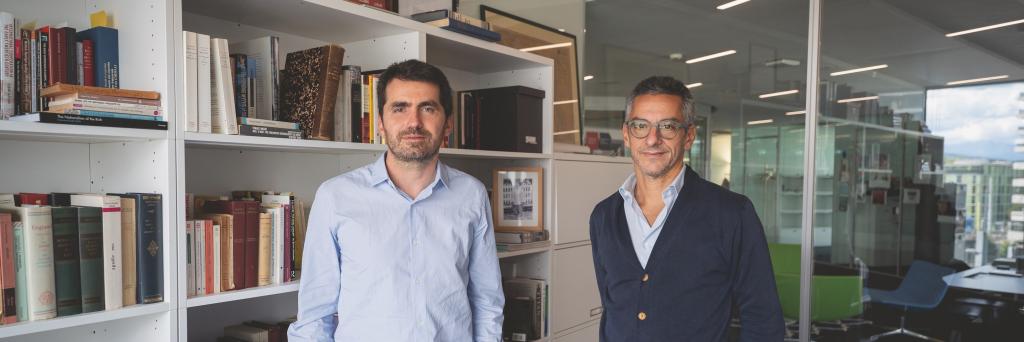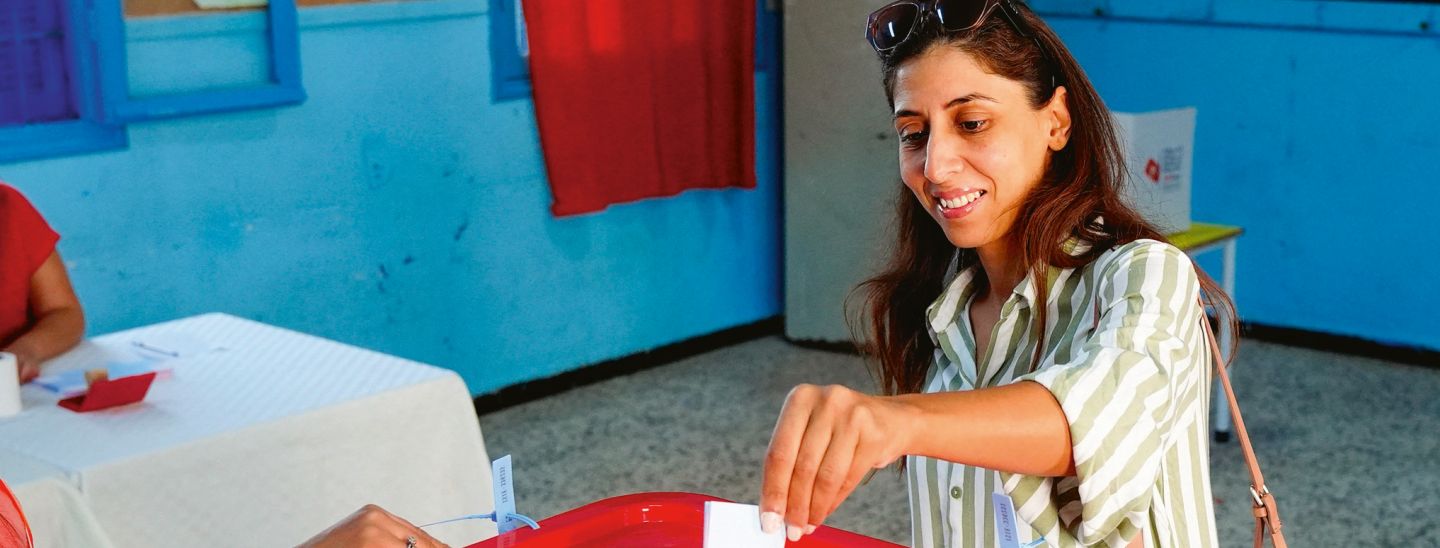A new research centre, the Centre for Digital Humanities and Multilateralism (CDHM), has just been established at the Institute. Why did you create this centre?
Grégoire Mallard (GM): The Centre for Digital Humanities and Multilateralism (CDHM) is founded on the conviction that multilateralism must be able to build on its century-old experience in Geneva to project itself with full confidence towards the future. We, along with Francesco Pisano, Director of the Library and Archives of the United Nations Office in Geneva (UNOG), are fortunate to have an experienced, interdisciplinary team building a first-of- its-kind centre that is slated to become a world leader in applying digital humanities to the study of diplomacy, multilateralism, and international relations. In doing so, CDHM creates ample space to promote the rich intellectual and archival heritage of the Geneva Graduate Institute, the UN archives in Geneva, and the international governmental and non-governmental organisations of International Geneva and beyond.
What are the missions, objectives and values of CDHM for the Institute?
Davide Rodogno (DR): The Centre’s mission is to preserve by digitising archives specific to the history of diplomacy and multilateralism in Geneva. We shall start with vast collections hosted by UNOG Library and Archives, the Institute library, and related archives – including those of international organisations (IOs) and academic and associative institutions, particularly of the Global South – while concomitantly creating a virtual Portal of Multilateralism. The idea behind this Portal is simple: access to the digitised archives will be optimised via the latest research tools, including data visualisation. We hope this will renew legal, sociopolitical, historical and interdisciplinary approaches to the study of multilateralism.
The Centre will structure a field of study and expertise: digital humanities applied to the study of IOs (whether governmental or non-governmental). Beyond bolstering scholarly activities for the Institute’s 2027 Centenary, CDHM aims to shine a light on the potential of digital humanities and their interest for schools, higher education programmes, and for practitioners of multilateralism worldwide.
Who are your partners and what is the advantage of these collaborations?
GM: Building on its core partnership with UNOG Library and Archives, which launched the digitisation of its own archives four years ago – including, but not limited to, the League of Nations (LONTAD project) – CDHM has the advantage not only of building firsthand on this successful proof of concept, but also of bringing its results into the world of research, by encouraging a networked approach to provide access to digitised archives. Together with Francesco Pisano’s team, we are building new partnerships to improve storage and research solutions on digitised archives of other organisations. In this way, we hope the Centre’s future Portal of Multilateralism will play a key role in establishing much-needed interoperability amongst university and IO libraries and archives, and we are also actively engaging with the digitisation of new archives, such as those of the United Nations Conference on Trade and Development (UNCTAD) and the United Nations Economic Commission for Europe (UNECE). Many other collections from different UN entities in Geneva are prospective partners for digitisation projects. Moreover, given the global reach and gravitas of Institute alumnae·i, CDHM will collaborate with depositories of archives related to the “academic diaspora” of former students, professors, and thought leaders the world over, reestablishing reflexive links to related scholarship in the Global South, for instance, as a key project focus.
An interdisciplinary team of historians, political scientists, sociologists, international law scholars, and digital humanities scholars are working on this project. How is work organised within the team?
DR: The project is organised in two “poles”: a “digitisation pole” including the Institute’s library and archives, archival and data experts, and external partners, all working to manage the physical material and its digitisation processes, and a second “research pole” whose members are part of an interdisciplinary team that intersects research methodologies to conceptualise, visualise, teach, and create dynamic outreach via “living” digital archives.
The research pole itself is structured around synergistic “axes”, dedicated to sociohistorical analyses based on the prosopography study of the Institute’s luminaries; innovative methodologies: ethnographies of archiving practices within IOs; and digital archives relating to financial capitalism and multilateralism.
What is the place of archives in the multilateral world of the 21st century, and how will this project help
to reinvent International Geneva?
GM: Multilateralism is a set of practices and institutions whose history is too often little known and in need of better understanding, especially at a time when multilateralism is being attacked by forces which ignore or misconstrue its operations. For a new generation of scholars, students and citizens interested in reforming multilateralism, the Institute can serve as a curator of knowledge to make these archives widely accessible, not only to researchers who come to Geneva, but, thanks to their digitisation, to the whole world.
Learn More about the New Centre
This article was published in Globe #34, the Graduate Institute Review.






